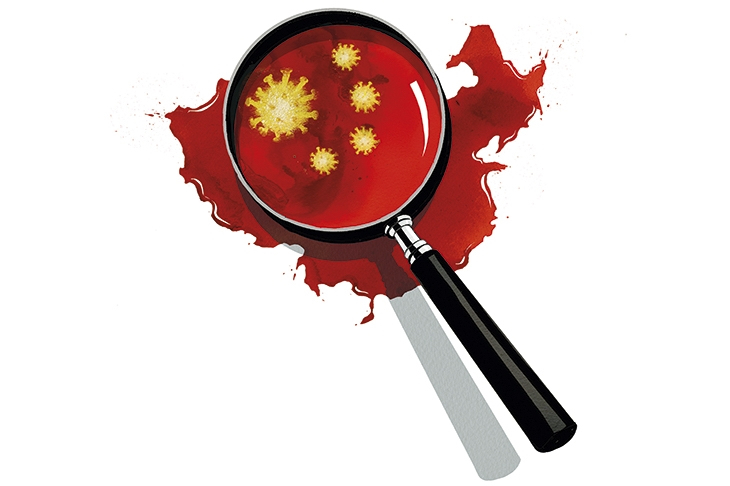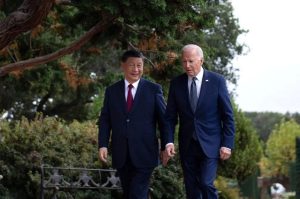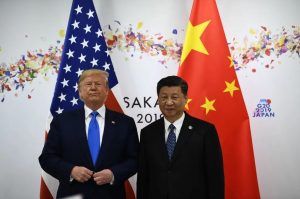In the wake of the coronavirus pandemic that killed millions of people across the world, taxpayers may still fund one of the ethically plagued American organizations that worked closely with the Chinese lab where the pandemic is believed to have originated.
The inspector general of the Department of Health and Human Services testified to Congress this week that she did not recommend that EcoHealth Alliance, the NGO accused of gross conflicts of interest and mismanagement of its relationship with the Wuhan Institute of Virology be suspended or debarred — the process by which the federal government bans any funding to an NGO.
Christi Grimm, HHS’s inspector general, said in response to questioning from Representative Morgan Griffith that while she recommended that the National Institutes of Health debar future contracts directly to the infamous Wuhan Institute of Virology, she also said that “in our report we do not recommend suspension and debarment for EcoHealth,” one of WIV’s most critical partners.
The implication of her remarks is that EcoHealth, one of the NGOs most closely tied to the Chinese lab where many experts believe the Covid-19 pandemic originated, can still receive taxpayer funds without any indication that it has meaningfully changed its policies. EcoHealth did not respond to The Spectator’s questions about whether it has reformed its policies on gain-of-function research or taken steps to prevent the spending of American taxpayer dollars on projects in labs overseen by the Chinese Communist Party.
At times, Griffith was almost speechless in his questioning. The Virginia Republican repeatedly criticized EcoHealth on multiple occasions for its failures to properly send reports on time. “They violated their contract because they didn’t get the information from the Wuhan Institute of Virology, and… we will never know what they were doing at that point in history.” In his estimation, “EcoHealth Alliance violated their contract, they were negligent, they were sloppy and they didn’t do their job. Why in the world wouldn’t we debar them?”
For years, EcoHealth was awarded millions of dollars of contracts by NIH, including an infamous one for $3.7 million on Understanding the Risk of Bat Coronavirus Emergence.
Extensive reporting in Vanity Fair detailed how EcoHealth, under the leadership of its polarizing director Peter Daszak, delayed key required reports, fell into multi-million dollar budget shortfalls and transformed into “a government-funded sponsor of risky, cutting-edge virus research in both the US and Wuhan, China.”
EcoHealth is alleged to have an extensive track record of dodging oversight from Congress and of gaslighting the federal government. In October 2021, Republicans on the Energy & Commerce Committee revealed that “NIH mismanaged concerns surrounding EcoHealth Alliance’s risky research in China.” Their findings include that EcoHealth conducted risky gain-of-function research all but in name, despite a pause implemented during the Obama administration.
The Republicans accuse Daszak of “dismiss[ing] NIH’s concerns with his explanation that EcoHealth’s research did not amount to gain-of-function and therefore, the experiments did not qualify to undergo additional risk assessment review by HHS,” and allege that “NIH uncritically accepted Daszak’s self-assessment and did not advance the research to HHS for independent risk assessment oversight review.”
A spokeswoman for HHS told me that EcoHealth’s subaward to the Wuhan Institute of Virology was terminated under the Biden administration.
However, that’s not telling the full story–despite repeated exposes into EcoHealth’s failures, the NIH grants database showed last October that its EcoHealth funding had been restored — while the specifics of its current WIV funding are unclear, any funding of an ethically plagued organization like EcoHealth is unacceptable to many. House Energy & Commerce Committee chair Cathy McMorris Rodgers called resumption of its funding “madness.”
For years, EcoHealth’s failures have led to scrutiny by many, including Grimm herself, who issued a scathing report this January saying that the “National Institutes of Health and EcoHealth Alliance did not effectively monitor awards and subawards, resulting in missed opportunities to oversee research and other deficiencies.” Despite her own findings, she nevertheless did not recommend that EcoHealth’s funding be suspended or that it be debarred.
This week’s hearing isn’t likely to quell congressional concerns into EcoHealth. Last year alone, Senator Joni Ernst lashed out at the organization’s “batty experiments” in China and introduced legislation to fully defund the tens of millions of dollars it receives, and Representative James Comer said that “EcoHealth should not receive a penny of American taxpayer dollars for their gross mismanagement of Americans’ hard-earned money.”





















